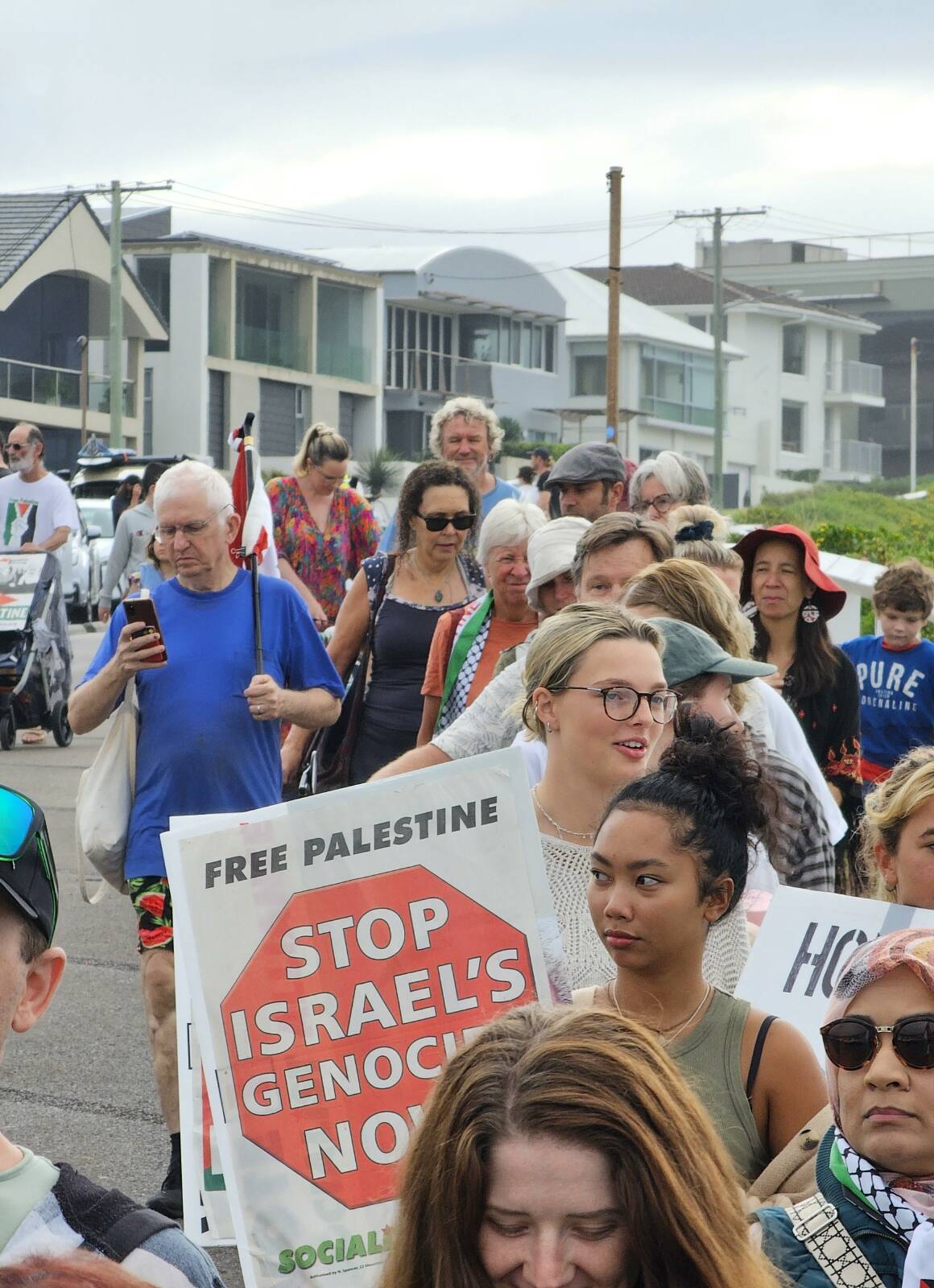
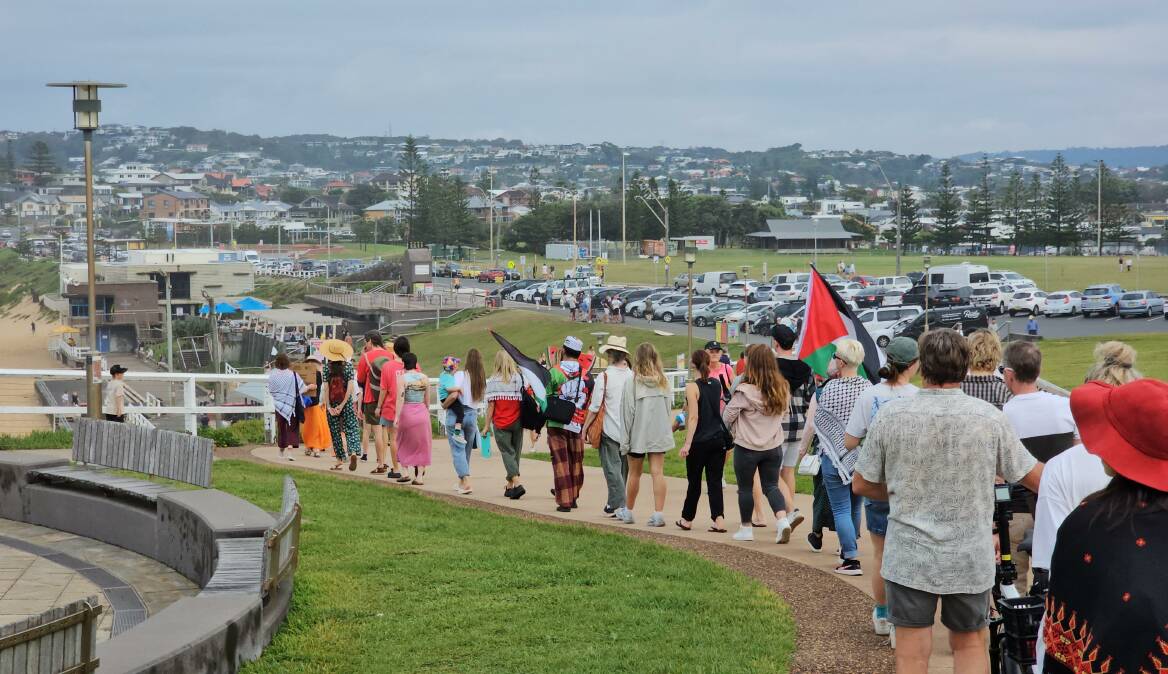
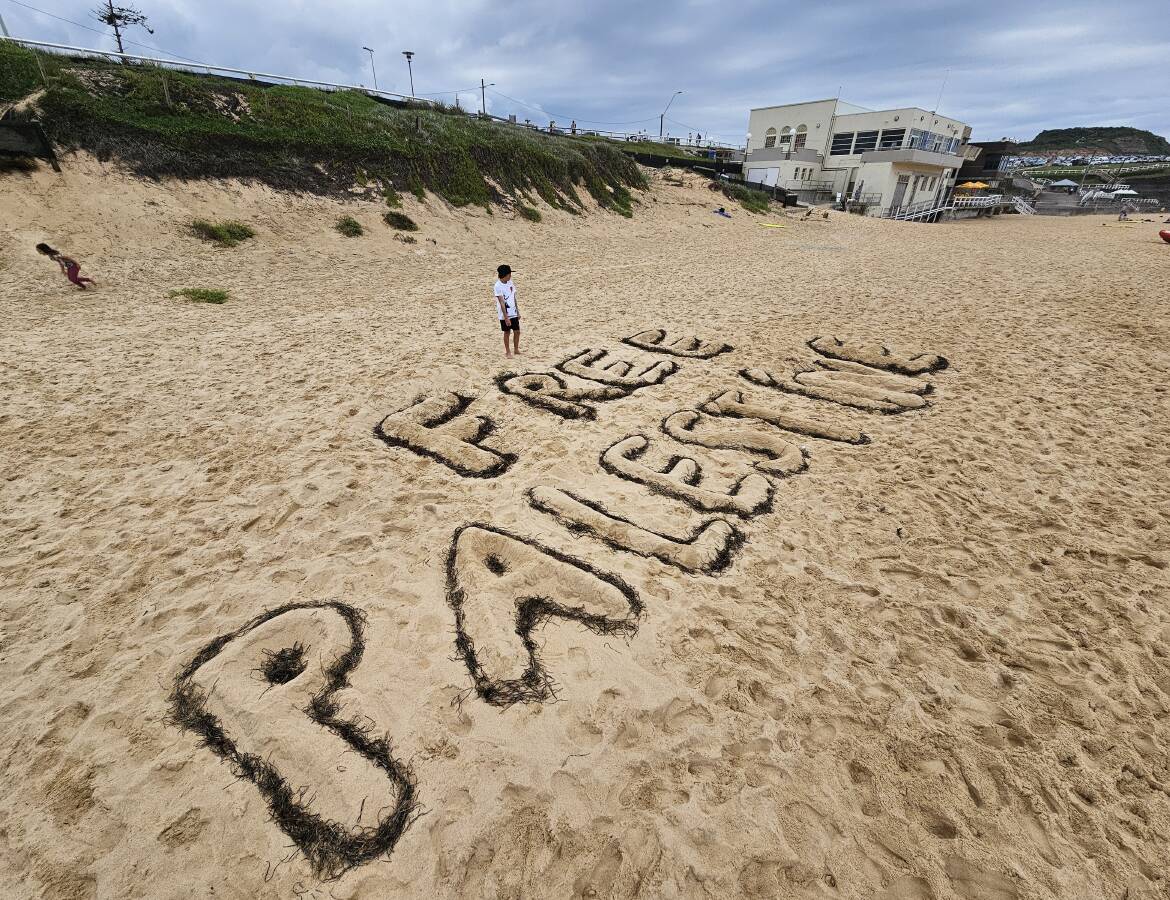
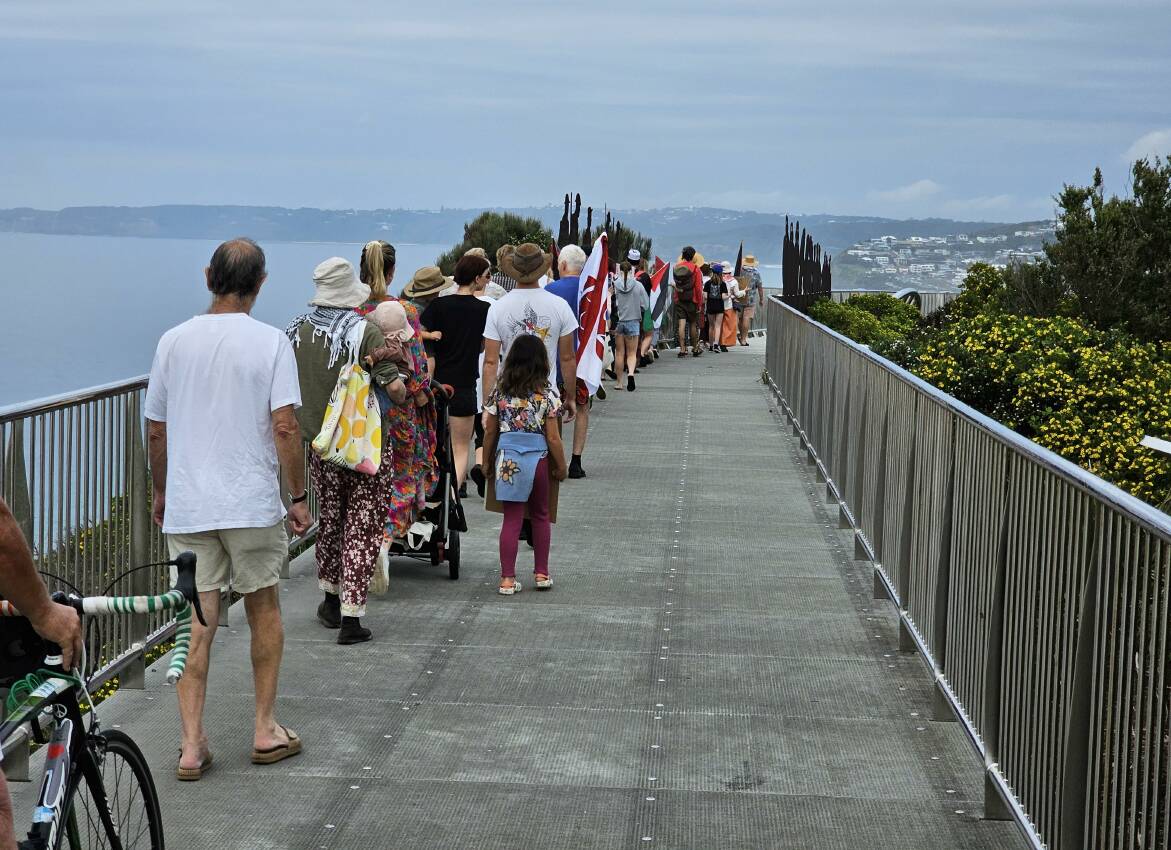

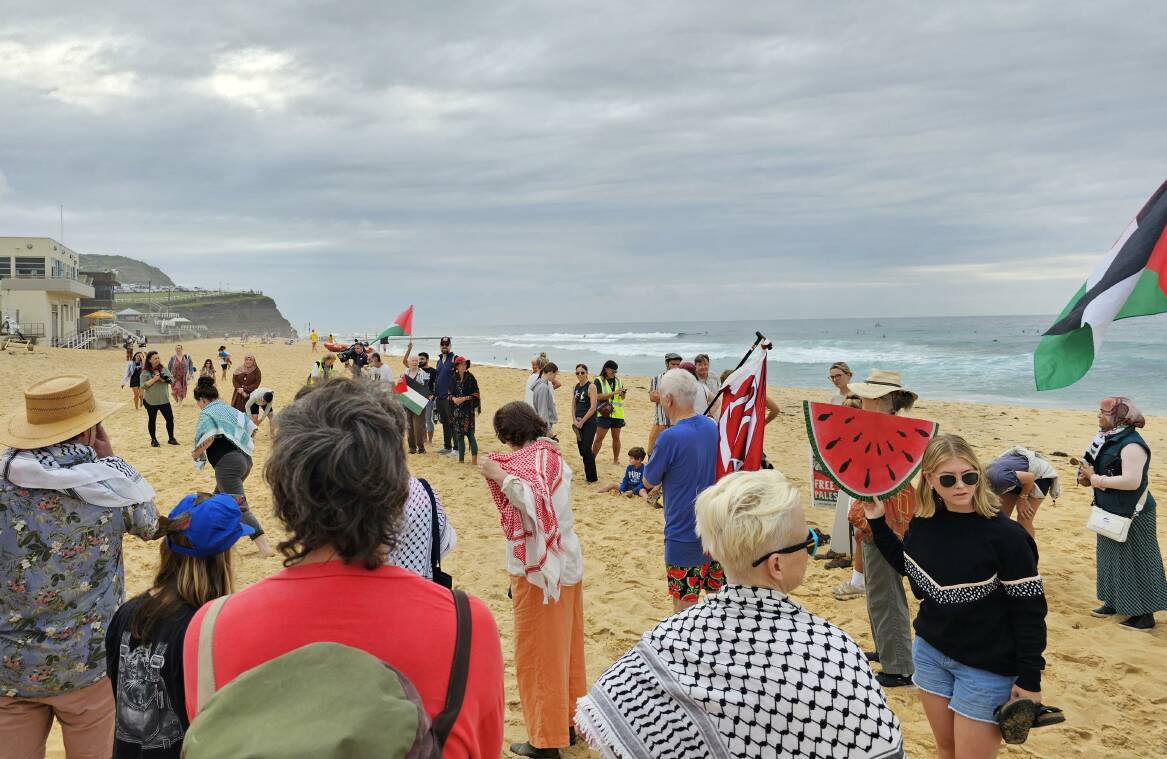

A procession of around 60 people staged a "sombre" protest on Good Friday along Memorial Drive toward Bar Beach in solidarity with Christian Palestinians and Muslims nearing the end of Ramadan in Gaza, 175 days after the Hamas attack on Israel that sparked the latest escalation in a generational conflict in the Middle East.
In a statement penned by a member of the local activism group Newcastle Mums for Palestine, Megan Clarke, organiser Ellen Al Muraibt said, "We owe it to our own children to keep talking about Palestine".
The procession came after months of similar protests staged across the city, several of which were organised by the Palestine Action Group in Newcastle, which has called for a ceasefire and for the Australian government to take a more active role in affecting the same.
At least 32,552 Palestinians have been killed, and thousands more have been injured in Gaza since October 7, according to data from the Gaza Health Ministry, which calculates the death toll by accumulating data based on administrator records of wounded people occupying hospital beds and bodies arriving at morgues in hospitals in the Gaza Strip.
While the figure "may not be perfectly accurate on a minute-to-minute basis", Michael Ryan of the World Health Organisation told the Associated Press in November, the Hamas-run health ministry's data has stood up to UN scrutiny in previous wars.
"This week we have seen Newcastle MP Sharon Claydon finally, after six months, say that the war on Gaza must stop and that 32,000 dead Palestinians is too many," Ms Muraibt said in the Newcastle statement before going on to demand an end to "diplomatic ties" with Israel, as well as "imposing sanctions" on the state.
Participants carried placards that read "Remember, Jesus was Palestinian", and others carried photos of two Christian women who were shot by Israeli snipers in December last year after the mother and daughter had taken refuge in the Holy Church in Gaza.
"I think it's important they know that peace was and still is possible," Ms Muraibt said.
Gaza is populated by around two million people and is ruled by the Islamist group Hamas, who came to power in 2006. Hamas has been designated a terrorist group by the UK and several other countries and is committed to the destruction of Israel.
The Department of Foreign Affairs and Trade has said more than 1500 Australians have left Israel and the Occupied Palestinian Territories since the violence erupted again last year. The latest bout of violence has displaced more than 1.4 million people, and access to water and humanitarian supplies in Gaza and the Occupied Territories is extremely limited.
On Thursday, judges at the International Court of Justice had unanimously ordered Israel to take all the necessary and effective action to ensure basic food supplies arrive without delay to the Palestinian population in Gaza.
The ICJ said the population in Gaza face worsening conditions of life, and famine and starvation are spreading.
"The court observes that Palestinians in Gaza are no longer facing only a risk of famine (...) but that famine is setting in," the judges said in their order.
The new measures were requested by South Africa as part of its ongoing case that accuses Israel of state-led genocide in Gaza.
In January the ICJ, also known as the World Court, ordered Israel to refrain from any acts that could fall under the Genocide Convention and to ensure its troops commit no genocidal acts against Palestinians in Gaza.
In Thursday's order the court reaffirmed the January measures but added Israel must take action to ensure unhindered provision of basic services and humanitarian assistance including food, water and electricity as well as medical supplies and medical care to Palestinians throughout Gaza.
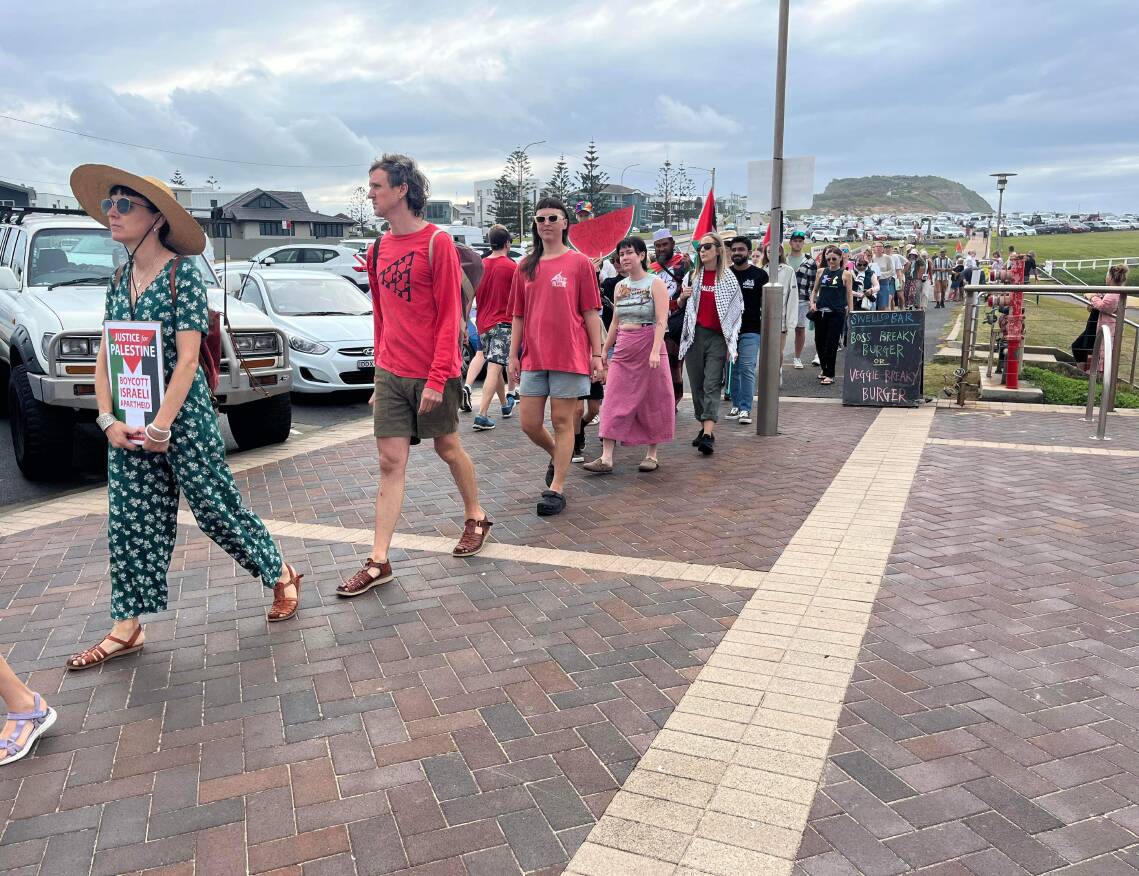
The order preceded reports Israel had carried out its deadliest strikes in months on northern Syria's Aleppo province early on Friday, stepping up its campaign against Iran's proxies in parallel with its war in Gaza.
Meanwhile, dozens of Palestinians were killed by aerial and ground bombardment in Gaza as fighting raged around Gaza City's main Al Shifa hospital, Palestinian officials and the Israeli military said.
Palestinian health officials said two Israeli strikes on the Al-Shejaia suburb in eastern Gaza City on Friday killed 17 people, while an Israeli air strike on a house in the Al-Maghazi refugee camp in the central Gaza Strip killed eight people.
Gaza's Hamas-run government media office said at least 10 policemen, tasked with securing aid to the displaced in northern Gaza, were among those killed in Al-Shejaia.
The Palestine Action Group Newcastle has staged a number of similar protests to that of Friday's procession, including one in January, since the conflict reignited in October.
The Middle East has been the most volatile part of the world since the mid-20th Century and tensions between Israel and Palestine date back as far at the 1800s when questions arose around the establishment of a Jewish homeland amid rising persecution and anti-Semitism in Europe.
In the early half of the 20th Century, the British Empire - which had a mandate over Palestine that included at that time all of Israel and the Occupied Territories, of Gaza and the West Bank - played a significant role in the region and arguably contributed a lot to the instability of the area overall.
Tensions and conflicts that have afflicted the Middle East over the past century are conventionally said to have began with the arbitrary redrawing of the region's map by the British and French after the Ottoman Empire collapsed during World War I.
A 2022 book, Worldmaking in the Long Great War, by Yale sociologist and historian Jonathan Wyrtzen suggested an alternative version of events, however, that centred around the actions of people in the region who resisted the colonial powers and attempted to establish a political order of their own.
"The modern Middle East developed as the result of interaction and conflict among multiple visions of the future pursued by both the colonial powers and locally on the ground," Wyrtzen said in a 2022 interview.
"World War I and the fall of the Ottoman Empire made these visions thinkable: The colonial powers were thinking about how to maximise their power and influence in the region, and the communities in the region began mobilising to fill the void left by the empire's collapse."
The US in recent days authorised the transfer of billions of dollars worth of bombs and fighter jets to Israel, two sources familiar with the effort say.
Washington has publicly expressed concerns about an anticipated Israeli military offensive in Rafah.
The new arms packages include more than 1800 MK84 900kg bombs and 500 MK82 200kg bombs, said the sources, who on Friday confirmed a report in the Washington Post.
Washington gives $US3.8 billion ($A5.8 billion) in annual military assistance to Israel, its longtime ally.
The package comes as Israel faces strong international criticism over its continued bombing campaign and ground offensive in Gaza and as some members of President Joe Biden's party call for him to cut US military aid.
- this story was compiled with reporting by AAP







